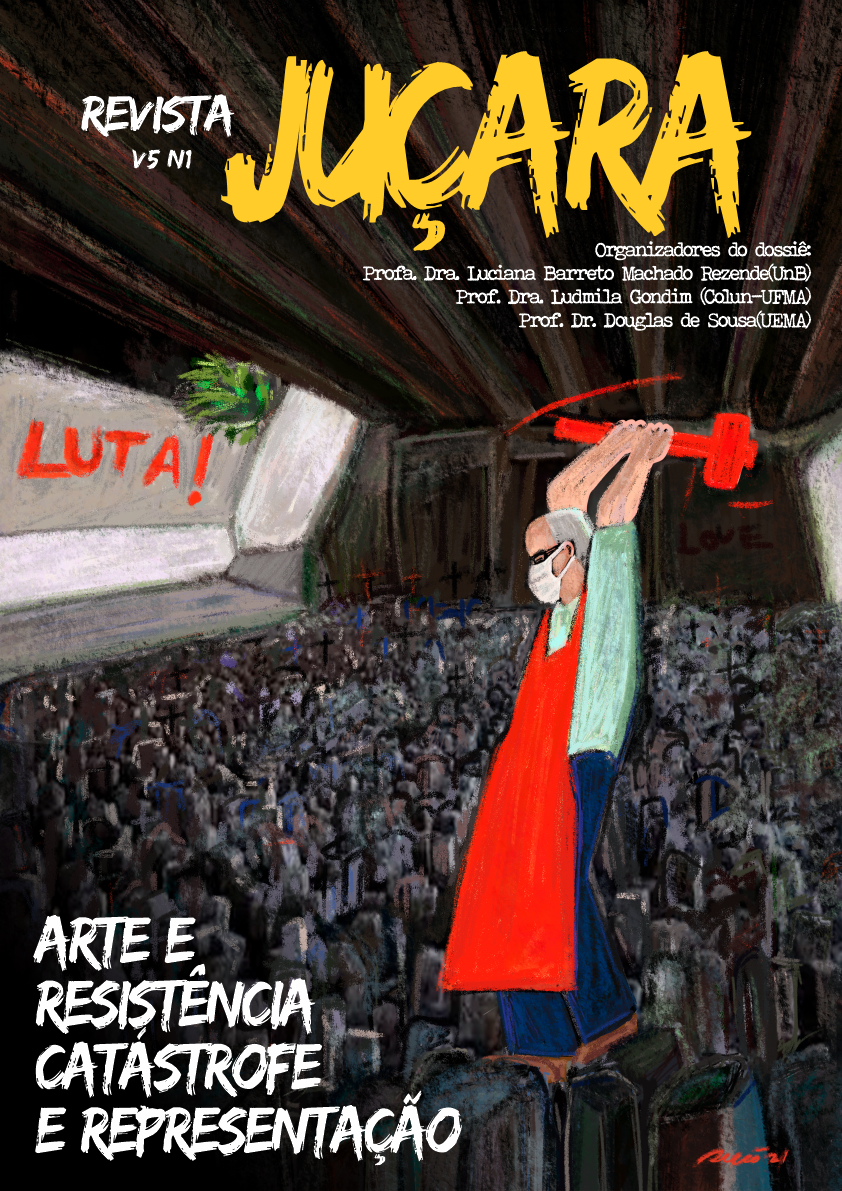THEATER AND BLACK IDENTITY: THE NUANCES OF SELF INDENTITY REPRESENTATION IN DESFUGA, BY UBIRAJARA FIDALGO
DOI:
https://doi.org/10.18817/rlj.v5i01.2580Abstract
The objective of this article is to examine the different ways in which the representation of black identity is faced by the main character in the theatrical monologue Desfuga, by the playwright who was in Caxias, Ubirajara Fidalgo. The play, initially written and staged in the 1980s, brings a conflicting path of rejection and acceptance of the Afro-Brazilian identity by the protagonist of the dramatic text. Such path ends up being relatable with so many others black people in Brazil in the 1980s - 20th century, even in our days. Ubirajara Fidalgo uses theater, in a tone of denounce, as an instrument of resistance to the structural racism that is still current in our day. Informing on the methodological procedures that grounded the present study, a bibliographical research was carried out focused on theoreticians who focus their research, concepts about black representation and identity, such as: Augel (2010), Bispo (2011), Hall (1997, 2003, 2005), Santos (2015), Sousa (2018). Another strand of approach concerns information about Ubirajara Fidalgo's biography and theatrical production, grounded by authors such as: Fidalgo (2017), Freitas (2013), Rezende (2017), Santos (2014). It is also proceeded by the reading and analysis of the play Desfuga, highlighting and examining if the passages in which are verifiable the alternating ways in which the protagonist relates to the black identity.
KEY WORDS: Black identity. Resistance. Theater.
Downloads
Published
How to Cite
Issue
Section
License
Copyright (c) 2021 Elizeu Arruda de Sousa, Ykaro Levy Marques Rosário

This work is licensed under a Creative Commons Attribution 4.0 International License.
A submissão de originais para a Revista de Letras Juçara implica na transferência, pelos autores, dos direitos de publicação. Os direitos autorais para os artigos publicados nesta revista são do autor, com direitos da revista sobre a primeira publicação. Os autores somente poderão utilizar os mesmos resultados em outras publicações indicando claramente a Revista de Letras Juçara como o meio da publicação original.


